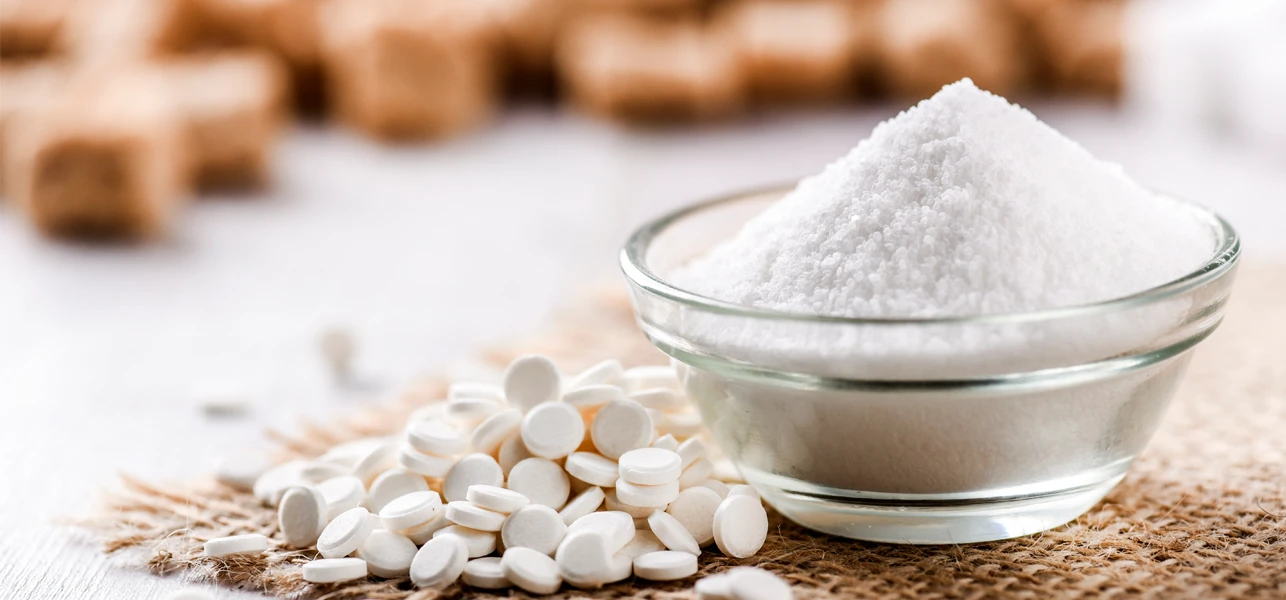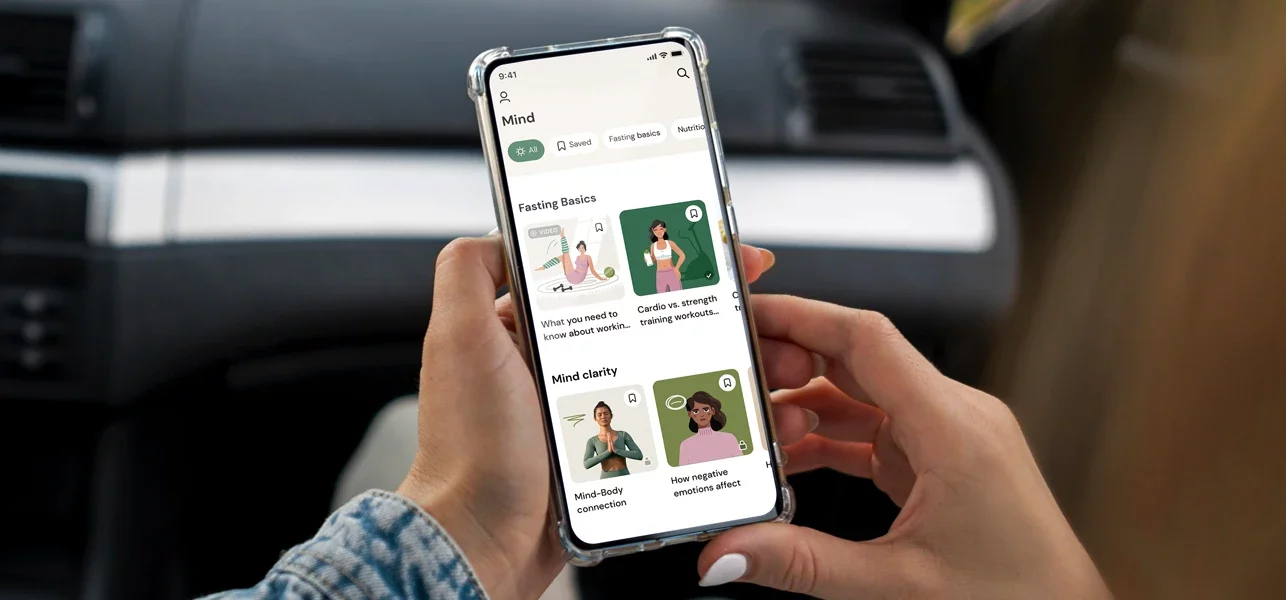Does Stevia Break a Fast? Benefits and Uses of This Sweetener

Despite being a popular dieting trend, understanding what foods and drinks you can and can’t consume while practicing intermittent fasting can be confusing. Avoiding candy, cakes, and other sugary snacks can be difficult when you’ve got a sweet tooth and are trying to lose weight.
Many people turn to sugar-free sweeteners like stevia to help them on their intermittent fasting journey. But will stevia break your fast?
Discover whether stevia is suitable for intermittent fasting, along with the health benefits of choosing this sweetener as part of a balanced diet.
Does Stevia Break a Fast?
No, stevia doesn’t break a fast as it contains zero calories. While fasting, you should not consume foods or drinks that contain calories, as this causes your body to use glucose for energy instead of fat.
Depriving your body of calories forces it to burn stored fat, which is known as ketosis. Choosing to consume stevia outside of your set eating period can help you quickly get into ketosis, eliminate excess fat, and lose weight.
Research indicates that stevia isn’t absorbed by your gastrointestinal (GI) tract during the digestion process.
Instead, it moves straight into the colon and is broken down by bacteria, meaning that it does not stimulate the gut and will not cause your intermittent fasting diet to fail.
What Is Stevia?
Steviol glycoside, which is more commonly known as stevia, is a popular type of sweetener that is used as a flavoring ingredient and a natural substitute for sugar. Despite containing no calories or carbohydrates, it tastes 250–300 times sweeter than regular sugar.
Stevia can be found in powder or liquid form at your local grocery store, and companies often add the substitute to diet sodas and flavored waters. Use it to sweeten your yogurt or oatmeal for a healthy yet delicious treat in your eating window.
As opposed to sugar, which contains 16 calories per teaspoon, stevia can also be used in drinks such as black tea, green tea, and plain coffee that can be consumed during the fasting window.
Along with various supplements and water, none of these beverages will push your body out of the starvation state.
Is stevia a natural sweetener?
As it is derived from the South American stevia rebaudiana plant, stevia is considered to be a natural sweetener. It is made from the leaves of the plant, which are harvested, dried, and purified of their bitter taste to provide it with that signature sweet flavor.

Advertisement
Does Stevia Spike Insulin?
Studies have shown that stevia does not cause insulin levels to rise significantly, making it an ideal sugar replacement for those with insulin resistance and type 2 diabetes.
Having a consistently high sugar intake can cause insulin spikes, which, over time, leads to insulin resistance. This occurs when receptors within the body become worn out.
As a result, insulin cannot properly perform its function of breaking down sugars for the cells to use, which can lead to high blood pressure, high cholesterol, and type 2 diabetes.
When stevia is consumed, the body doesn’t recognize it as sugar. Instead, the chemicals within the sweetening agent simply bind to taste buds that recognize sweet flavors.
How to Use Stevia While Fasting
You should use stevia powder or liquid as a replacement for table sugar and other sweetening agents that contain calories. Add stevia to black coffee and tea while fasting, and incorporate it into green smoothies, homemade baked goods, and your favorite desserts for a zero-sugar, lower-calorie treat.
Despite its benefits for intermittent fasting and weight loss, stevia should be consumed in moderation. According to the Food and Drug Administration (FDA), you shouldn’t eat more than 4mg of the sweetener per kilogram of body weight each day.
For an adult weighing 150 pounds, this is equivalent to approximately 272mg per day, 5–7 drops of pure liquid stevia, or 40 packets of stevia.

When drinking a product containing stevia during the fasting window, it’s important to check the label for any other ingredients that could break your fast.
Many stevia foods and drinks also have sugars such as dextrose and maltodextrin, both of which contain calories. Try to only select products made with pure stevia extract if you’re unsure.
3 Benefits of Stevia
As a sweeter sugar alternative, stevia has many advantages that make it great for fasting, weight loss, and type 2 diabetes. The sweetening agent also has other significant benefits for your health, which are explored in more detail below.
#1 Beneficial in weight loss
Choosing products that contain stevia over sugary treats is ideal for those trying to lose weight, as stevia is a zero-calorie sweetener. Consuming stevia will help you stay in a caloric deficit, where your body burns more calories than it receives from food and drinks.
You should therefore select stevia on an intermittent fasting diet to help you lose weight fast and ensure that your body burns stubborn fat.
#2 May improve blood pressure
Another advantage of consuming sweeteners with zero calories, such as stevia, is that they can widen blood vessels, which lowers overall blood pressure.
This is ideal for those with hypertension, and there is currently no evidence suggesting that the sweetener dangerously lowers levels for those with normal blood pressure.
#3 Lowers inflammation
Stevia contains stevioside and steviol, chemical compounds that are rich in antioxidants and give stevia its sweet taste. These antioxidants fight free radicals that damage cells and cause inflammation within the body.
For instance, both compounds have been linked to improved symptoms of inflammatory bowel disease, as well as having antiviral, antimicrobial, and antifungal properties that help protect the immune system.
Which Sweeteners to Avoid While Fasting?
There are two different types of sweeteners, which are nutritive and non-nutritive.
Nutritive sweeteners include table sugar, agave, honey, and sugar alcohols such as sorbitol, maltitol, and xylitol. These should be avoided while fasting, as they contain calories that your body will begin to use for energy.
The type you should be consuming are non-nutritive or artificial sweeteners, which contain little to no calories and taste much sweeter than those that fall into the other category. Along with stevia, some of the other most common artificial sweeteners are:
- Sucralose
- Aspartame
- Saccharin
- Monk fruit
- Acesulfame
FAQs
Drinking a soda such as Zevia will not break a fast as it contains natural sweeteners such as stevia leaf extract. This means it has no calories, protein, carbs, or fats. However, it’s only allowed on so-called “dirty” fasting.
Stevia is a keto-friendly sweetener that contains no carbohydrates, so consuming it will not disrupt the fat-burning ketosis process.
As the sweetener has no calories or protein, stevia has no impact on autophagy. The body recycles damaged cell components during this process, which can help to boost brain health and increase your energy levels while fasting.
A Word From an MD
For those wanting to control the symptoms of type 2 diabetes or lose weight through intermittent fasting, stevia is a good zero-calorie, zero-carbohydrate alternative to sugar that won’t break your fast.
If you are taking any form of medication to lower your blood pressure or blood glucose levels, you should consult your doctor before consuming any food or drinks containing stevia. The sweetener helps to lower these levels and can increase the effects of your medication, which could be dangerous.
Watch out for stevia blends that are made by combining pure stevia leaf extract with other sweeteners or sugar alcohols.
Although they are safe to consume, these products can cause digestive issues such as bloating, gas, nausea, and diarrhea for those with sugar alcohol sensitivity.
Conclusion
As a natural substitute for sugar, consuming a moderate amount of stevia will not break a fast. The sweetener has several health benefits for those looking to lose weight or manage the symptoms of diabetes.
Be sure to check the ingredients of products containing stevia, as many are also made with calorie and carb-laden ingredients that will break your fast. Choose products made with pure stevia extract to ensure that you experience all of the benefits of an intermittent fasting diet.
Those taking medication to lower blood pressure, blood sugar levels, or with conditions such as diabetes, cancer, kidney disease, and liver disease should consult their physician before consuming significant amounts of stevia.







Comments (0)